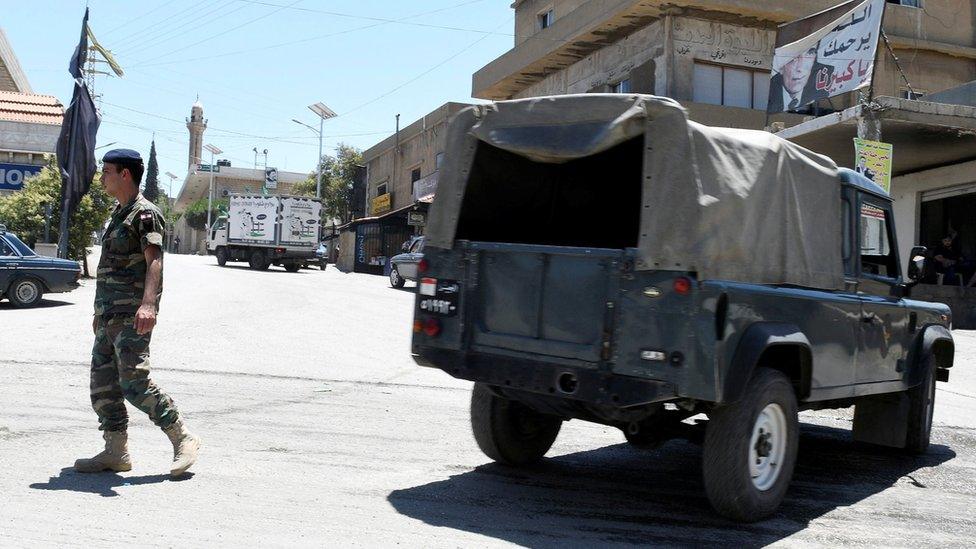US-led strikes in Syria block IS militants evacuated from Lebanon
- Published
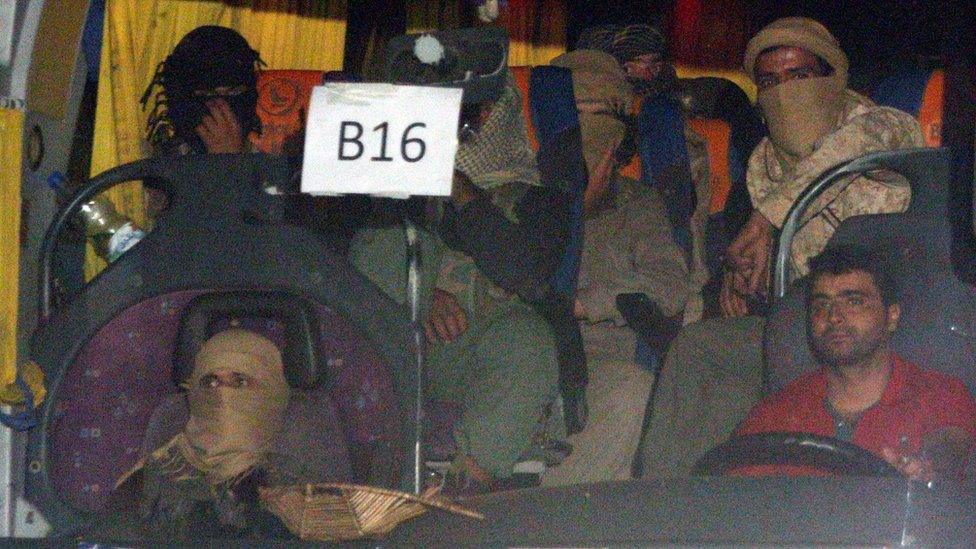
IS militants and their families were photographed leaving the border zone on Monday
US-led coalition aircraft have carried out strikes to halt a convoy evacuating Islamic State militants from the Lebanon-Syria border area towards Iraq.
The coalition said it had not hit the convoy, but "cratered" a road in east Syria and bombed IS vehicles nearby.
Earlier, the US envoy to the coalition condemned the evacuation, which was negotiated by the Lebanese army, the Syrian army and its ally Hezbollah.
Brett McGurk insisted, external that "terrorists should be killed on the battlefield".
He also said the coalition would "help ensure that these terrorists can never enter Iraq or escape from what remains of their dwindling 'caliphate'".
Lebanese, Syrian and Hezbollah forces agreed ceasefires with IS militants near the town of Ras Baalbek last week, only days after launching simultaneous offensives on the jihadists' final foothold in the border area.
In exchange for turning over the bodies of several Lebanese soldiers captured in 2014, more than 300 militants and their families were allowed to leave for Albu Kamal, a town in the Syrian province of Deir al-Zour that is 6km (4 miles) from the Iraqi border.
On Wednesday morning, Lebanon's President Michel Aoun hailed the country's "victory over terrorism" and said its citizens could "be proud of their army".
Allow X content?
This article contains content provided by X. We ask for your permission before anything is loaded, as they may be using cookies and other technologies. You may want to read X’s cookie policy, external and privacy policy, external before accepting. To view this content choose ‘accept and continue’.
His army chief, Gen Joseph Aoun, meanwhile defended the evacuation deal, saying he had wanted to find the missing soldiers and not risk any more lives.
"I had two choices - either I continue the battle and not know the soldiers' fate, or I submit to the situation and find out. Their souls are my responsibility," he said.
In a statement announcing the air strikes aimed at blocking the convoy, the coalition stressed that it "was not a party to any agreement" with the jihadists.
"In accordance with the law of armed conflict, the coalition cratered the road heading east between Hamaymah and Albu Kamal to prevent the further transport of [IS] fighters to the border area of our Iraqi partners, and struck individual vehicles and fighters that were clearly identified as [IS]," it said.

The coalition also said vows from the Syrian government and its allies to combat IS "ring hollow when they cut deals with and allow terrorists to transit territory under their control".
"[IS] is a global threat; relocating terrorists from one place to another for someone else to deal with, is not a lasting solution," it added.
Iraq's Prime Minister, Haider al-Abadi, also criticised the deal in a speech on Tuesday, calling it "unacceptable" and an "insult to the Iraqi people".
"We fight the terrorists in Iraq. We do not send them to Syria," he said.
- Published27 August 2017
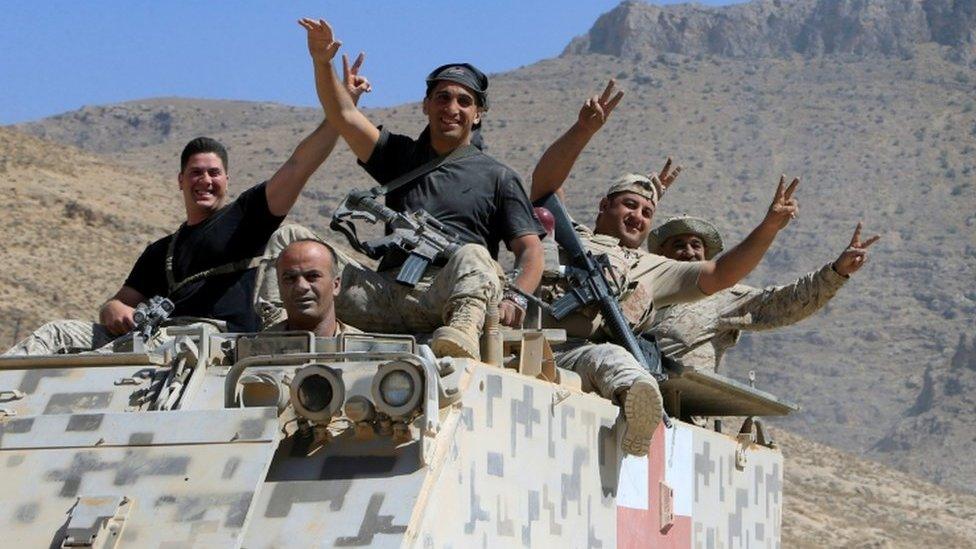
- Published20 August 2017
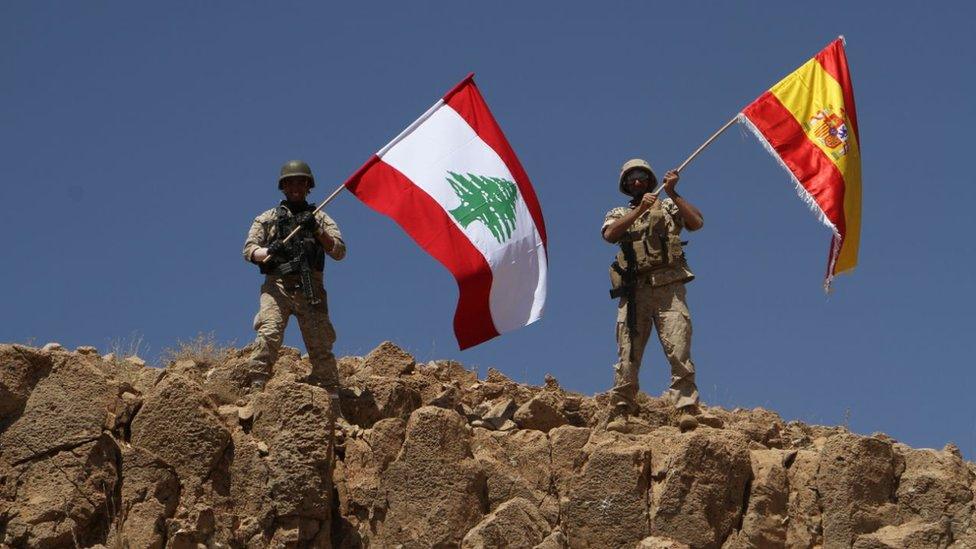
- Published2 August 2017
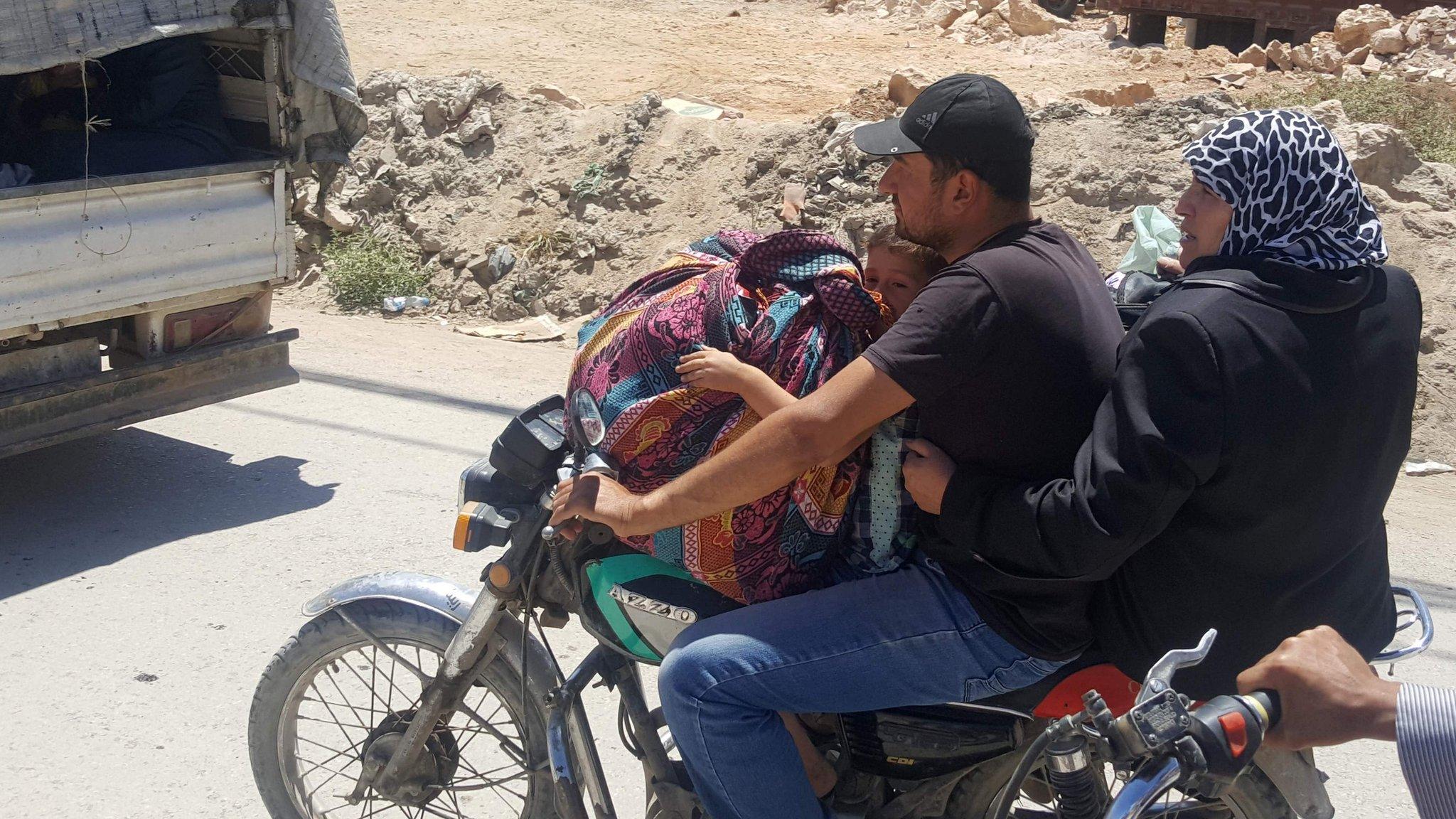
- Published17 October 2017
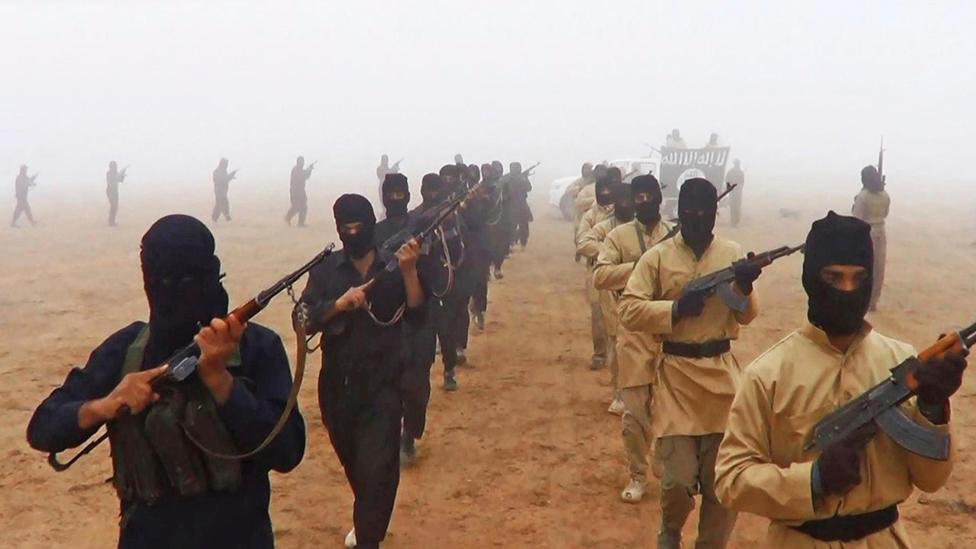
- Published21 July 2017
